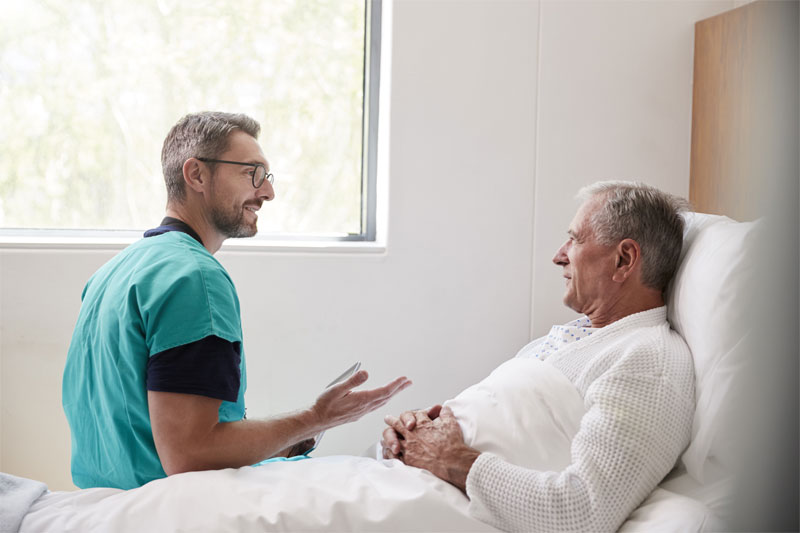Recovery: What to expect after prostate surgery
There are several questions that come to our minds when we think about recovery after prostate surgery:
- How long it takes to recover after surgery?
- What dietary steps should I take after prostatectomy to facilitate recovery and overall prostate health?
- How much pain will I have after surgery?
- What are the chances my cancer will return or recur after surgery?
- What other side effects or complications are possible after prostate surgery?… and many more.
It’s important to establish from the beginning of this article that there are different types of surgery for prostate cancer, each one with its consequences and benefits. The type of surgery you need for prostate cancer depends on:
- The size of cancer and whether it has spread outside the prostate gland;
- What the cells look like under a microscope;
- The likely outlook for your condition (your prognosis);
- Your general health;
- Your symptoms.
Radical prostatectomy and robotic prostate surgery are the most common terms for prostate removal surgery. Nowadays, many surgeons use robotic or laparoscopic prostatectomy to remove a cancerous prostate, but early methods involved traditional or open surgery. Dr. David Samadi, who is at the forefront of prostatectomy and prostate removal surgery has performed more than 7.000+ successful procedures using his innovative SMART technique.

Let’s move on and discuss what are the possible long-term side effects of a prostate surgery. The major possible side effects of a radical prostatectomy are urinary incontinence (being unable to control urine) and erectile dysfunction (impotence; problems getting or keeping erections).
A recent survey of 247 patients treated at the University of California at Los Angeles Medical Center highlights some of these types of problems:
Two years after the surgery, 60% of patients still had some trouble achieving or maintaining erections. Thirty months after the surgery, 37% still reported some loss of urinary function. Despite these setbacks, however, most patients had an upbeat attitude. More than 90% said their overall quality of life was back to normal within six to nine months of the surgery. Younger men proved to be especially likely to rebound quickly from the operation.
Impotence and erectile dysfunction (ED) after prostate surgery:
Expect some ED, but know that for most men it is temporary. During recovery, medications like Viagra and Cialis will help. Dr. David Samadi says restoring an enjoyable sex life after prostate cancer surgery is in part dependent on the prostate cancer treatment and choice.
Also, Kegels are a simple exercise of clenching and releasing the muscles that control your urine flow. Patients who experienced normal continence prior to surgery should regain function within 12-13 months of their surgery. There is never a 100% guarantee, but every surgeon does its best and with these advanced techniques available today, they should get everyone there.
In Dr. Samadi’s skilled hands, patients are assured superior quality of life results in both sex after prostate surgery and urinary control after prostate surgery. Following proper prostatectomy recovery guidelines, patients who experienced normal continence prior to surgery should regain function within 12-13 months.
Dr. Samadi’s prostate surgery takes just 1.5-2 hours and almost all of his patients return home the day after having a robotic prostatectomy. Around 80% of open prostatectomy patients leave the hospital within the first week.

Surgery can be hard, but nothing compares to cancer! This disease can be an emotional journey for the entire family, but try to keep your positive attitude and don’t give up because everything will be back to normal faster than you could possibly imagine.

